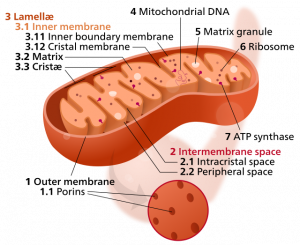The association between the risk of heart disease and dietary intakes of selenium remains unclear. Here we report the results of some of the recent observational studies on this topic.
Risk of Cardiovascular Disease

The association between the risk of heart disease and dietary intakes of selenium remains unclear. Here we report the results of some of the recent observational studies on this topic.

Selenium has beneficial effects on the prevention and treatment of heart failure. Higher serum selenium levels are associated with a lower risk of new-onset heart failure and with a lower risk of mortality. Now, data from a 2024 cohort study suggest that strengthened immune system function may be a mechanism that explains the positive effect of selenium [Al Mubarak 2024].

In the study, Al Mubarak et al analyzed the data from a cohort of 2,328 patients diagnosed with heart failure. Heart failure is the medical term to describe patients with a heart muscle that cannot pump as much blood out to the tissues and organs as it should. The heart is too weak or too stiff to fill up with blood and pump out blood optimally. Heart failure is frequently associated with a build-up of fluid in the lungs – causing shortness of breath – and in the lower extremities. The bottom line is that heart failure can be life-threatening [Mayo Clinic Staff 2025].
Heart failure is a condition in which the heart no longer performs as well as it should. It affects millions of people in the United States and Europe. Heart failure is characterized by the following symptoms:
• shortness of breath
• build-up of congestion in the lungs
• accumulation of fluid in the lower extremities

Low serum selenium levels are associated with increased risk of heart failure [Al-Mubarak 2021; Bomer 2020].
Myocardium is the medical term for the heart muscle. Cardiomyopathy is a disease or disorder of the heart muscle, often of unknown cause. Keshan disease is a form of cardiomyopathy that develops as a result of selenium deficiency and exposure to a strain of the coxsackievirus. The disease takes its name from Keshan County in northeastern China Its symptoms were first observed there. Keshan disease can result in heart failure [Zhou 2018].
Heart disease. The evidence from clinical studies is increasing. Selenium deficiency is associated with an increased risk of heart trouble [Bomer 2020]. Selenium supplementation of elderly individuals who have low selenium status is associated with improved survival, improved heart function, and improved quality of life [Alehagen 2013].

Especially in northern Europe, clinical studies show the relationship between the need for selenium and the risk of heart disease. This makes sense because the dietary selenium intake in northern Europe is considerably lower than the dietary selenium intake in much of the United States. Consequently, the mean plasma selenium concentrations in Europe tend to be well below 80–90 mcg/L. In the USA, on the other hand, the mean plasma selenium concentrations are generally above 120 mcg/L [Alehagen 2022].
Low plasma selenoprotein P levels are associated with a higher risk of heart failure in a Swedish population [Jujic 2023].

Plasma and serum selenoprotein P concentrations are useful biomarkers of selenium status in individuals with relatively low selenium intakes because selenoprotein P responds to different intake forms of selenium [Hurst 2010].
Selenium deficiency – defined as serum selenium concentrations below 70 mcg/L – has been associated with more severe symptoms of heart failure, poorer exercise capacity, and poorer quality of life. Sub-optimal serum selenium concentrations of 70–100 mcg/L have similar adverse associations, suggesting that values less than 100 mcg/L, might be considered abnormal [Bomer 2020].
Selenium exposure in the diet and in supplements: in this review article, we summarize the key outcomes of the best selenium exposure studies.
In his review of the available research literature, Professor Urban Alehagen, Linköping University, Sweden, concluded that a daily intake of 100–150 mcg of selenium per day is required.
This is the intake level that enables an optimal expression of the important selenoprotein P that transports selenium from the liver to peripheral tissues [Alehagen 2022]. For other selenoproteins to be optimized, i.e., to be fully expressed, Prof. Alehagen argues that selenium status of approximately 120 mcg/L when measured in red blood cells is necessary [Alehagen 2022].
Heart failure – the inability of the heart muscle to pump a sufficient quantity of blood out to the body – is a debilitating disease, resulting in shortness of breath, congestion in the lungs, and pooling of blood in the lower extremities. Heart failure is equivalent to diminished quality of life.

The prognosis for heart failure is poor, and the available medical therapies for patients with heart failure are inadequate. New treatment strategies are needed [Mortensen 2015].
Yin et al have analyzed the data from 39,757 adults in a cross-sectional study from the 2005–2018 US National Health and Nutrition Examination Survey. Their findings suggest that high levels of combined dietary antioxidant micronutrients are associated with decreased prevalence of various forms of cardiovascular disease and that selenium has the greatest contribution to this association [Yin 2022].